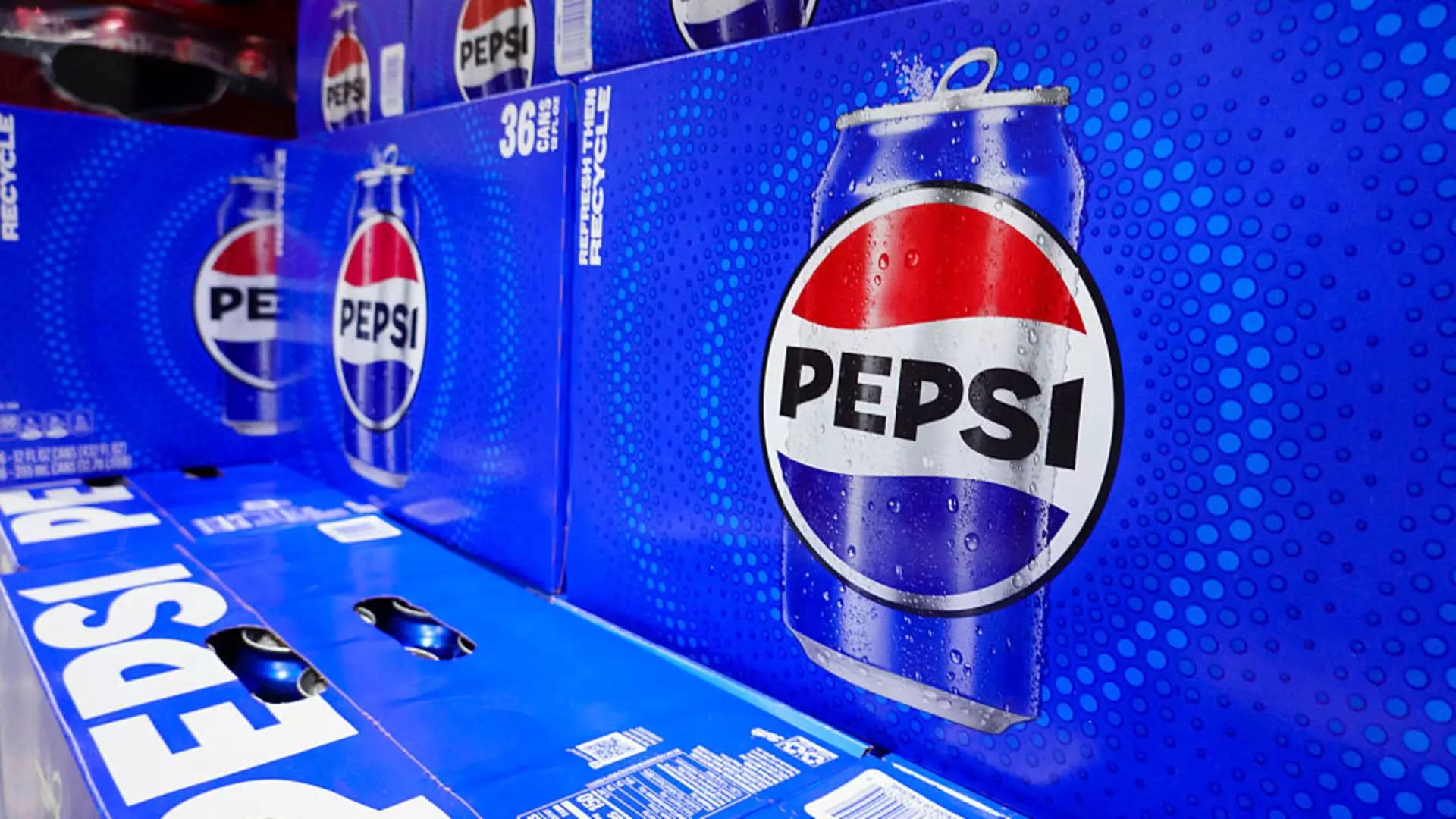Despite PepsiCo’s recent earnings report sounding optimistic on paper, a closer examination reveals a troubling disconnect between stated ambitions and underlying realities. The company’s revenue surpassed analyst expectations, yet the stark truth is that revenue growth remains modest at best, heavily dependent on strategic reshuffles rather than genuine consumer-driven expansion. The 1% rise in net sales and a minor 2.1% organic revenue increase barely disguise a landscape riddled with declining volumes and softening demand in core markets. When CEO Ramon Laguarta asserts that North American demand will rebound because “strategy changes take hold,” skepticism is warranted. Are these strategies enough to counteract fundamental shifts in consumer loyalty? Or do they merely serve as temporary Band-Aids on a hemorrhaging core business?
The fact that Pepsi’s net income plummeted from $3.08 billion to approximately half that figure highlights a dire challenge—cost-cutting measures have mitigated losses but not reversed the overall decline. The company’s reliance on cost-efficiency and restructuring, including closing plants and optimizing logistics, offers short-term relief but cannot substitute for reinvigorating the brand’s appeal to discerning consumers increasingly seeking healthier, authentic, and ethically-sourced products. Meanwhile, the share price’s 6% increase appears largely baked into the narrative of strategic optimism, rather than reflecting a genuinely robust business.
Strategic Shifts or Defensive Maneuvers?
Pepsi’s pivot towards healthier snacks and multicultural offerings illustrates a recognition of evolving consumer preferences. The focus on brands like Siete Foods and Sabra aims to capture a growing segment craving authenticity and wellness. Yet, these efforts seem reactive rather than proactive; the company is trailing behind smaller challengers who have built trust and loyalty around niche health and multicultural niches for years. Relaunching traditional products like Lay’s and Tostitos with an emphasis on core ingredients seems more a defensive effort to preserve shelf space than a visionary move forward. Are these rebranding efforts enough to salvage a brand stature that has, in many ways, become commoditized? Or are they merely treading water while more innovative competitors forge ahead?
Furthermore, Pepsi’s push to improve in-store visibility and bolster distribution channels is pragmatic but lacks the disruptive edge necessary for industry leadership. The logistics and cost-cutting initiatives, including shuttered plants and tightened marketing spend, suggest an urgent scramble to protect margins rather than laying the groundwork for future growth. If demand continues to soften, such internal efficiencies will be insufficient to sustain profitability over the long term.
The Reckoning of the ‘Reboot’ Strategy
What is most concerning is Pepsi’s reliance on superficial metrics—like volume growth in specific segments such as Pepsi Zero Sugar—without addressing the larger trend: a consumer base increasingly skeptical of sugary drinks and processed snacks. The company’s acknowledgment that North American food and beverage divisions overlap indicates an attempt to streamline operations, but such measures are unlikely to compensate for deeper market shifts. Consumers are demanding more than just healthier options—they want brands that genuinely align with their values, not just marketing campaigns that repackage old products.
Pepsi’s full-year outlook, which forecasts tepid single-digit organic growth and flat earnings, underscores an underlying uncertainty. The company is still grappling with the impact of tariffs, economic volatility, and cautious spending habits among consumers. These headwinds won’t be easily remedied by restructuring or a few product relaunches. A decisive pivot toward innovation, quality, and authenticity is needed—yet there’s little evidence that Pepsi is willing to significantly abandon its reliance on established, albeit declining, markets.
It’s become clear that Pepsi’s strategic efforts are more about staving off decline than fostering sustainable growth. The company’s leadership must confront the uncomfortable truth: its current trajectory, heavily dependent on cost savings and incremental product tweaks, is insufficient in an increasingly health-conscious, socially aware marketplace. Without bold, consumer-centric innovation, Pepsi risks becoming irrelevant in a landscape moving faster than its ability to adapt.

